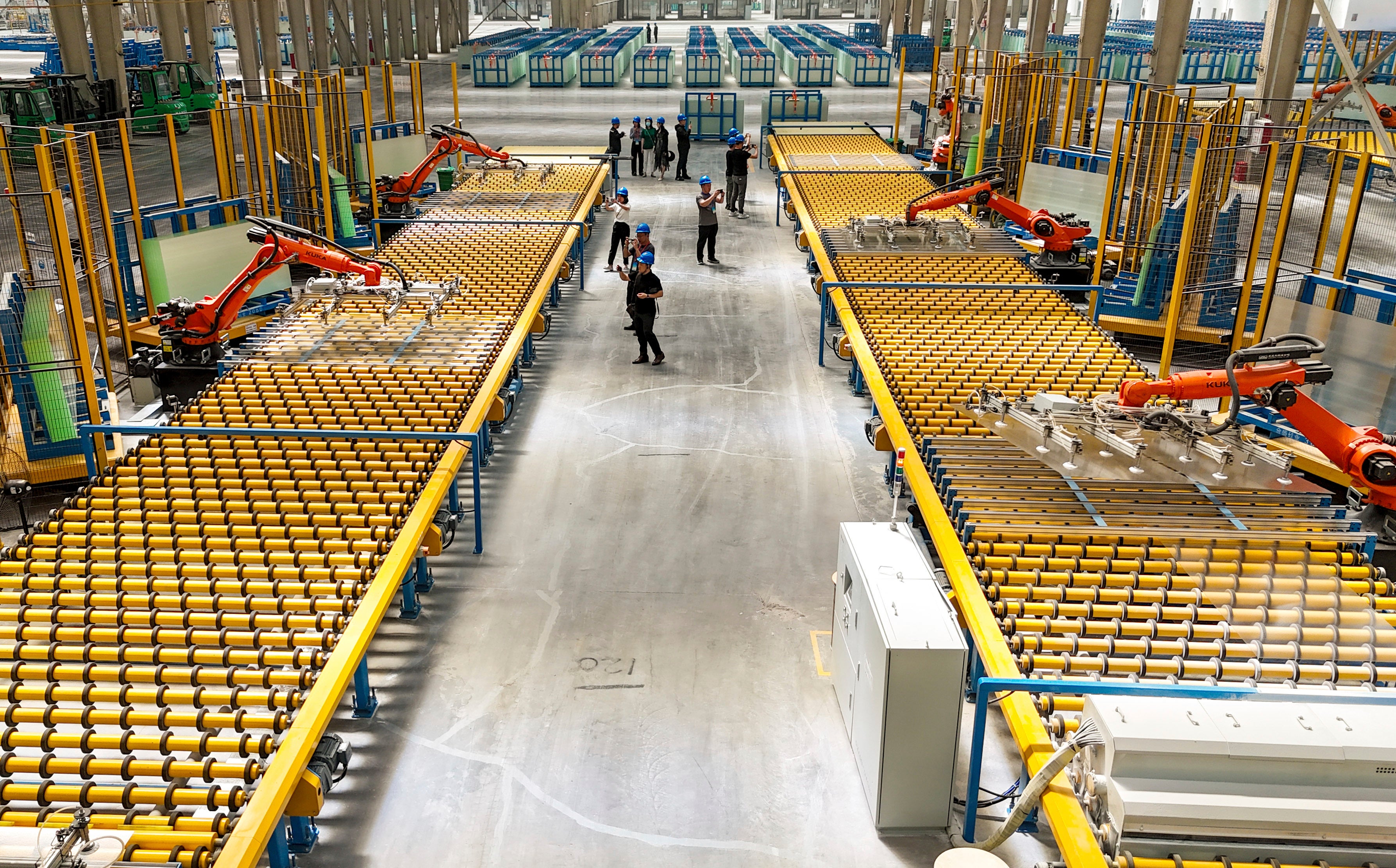China factory indicator falls in May, suggesting growth has faltered
An official survey shows that factory activity in China slowed more than expected in May, suggesting further pressure on an economy already burdened by a prolonged crisis in the property industry

Factory activity in China slowed more than expected in May, suggesting further pressure on an economy already burdened by a prolonged crisis in the property industry, according to an official survey released Friday.
The manufacturing purchasing managers index from the China Federation of Logistics and Purchasing fell to 49.5 from 50.4 in April on a scale up to 100 where 50 marks the break between expansion and contraction.
The main reason for the slowdown was a drop in output. Weaker new orders and export orders suggests slack demand.
Analysts’ forecasts had put the manufacturing PMI at just above 50, or still in expansionary territory after the economy grew at a quicker than forecast annual pace of 5.3% in the first quarter of the year.
But uncertainties over access to the U.S. market have been growing as President Joe Biden and his rival for re-election, former President Donald Trump, both double down on their support for keeping or raising stiff tariffs on imports from China.
“The latter (new orders and export orders) may point to near-term declines in exports, but it is more likely to reflect sentiment effects due to Biden’s new tariffs,” Zichun Huang of Capital Economics said in a report.
China recently relaxed down-payment requirements and cut minimum interest rates on some home loans as part of its effort to stabilize the housing market. Housing prices have been falling, construction has stalled and dozens of developers have defaulted on their debts after the government cracked down several years ago on excess borrowing.
Friday’s survey showed construction slowing slightly.
Chinese families keep much of their personal wealth in property and the prolonged downturn has gutted the market. Job losses due to the pandemic and other factors, such as a tightening of controls on technology-related businesses have also hit spending.
Many economists say longer term reforms are needed to raise consume confidence and sustain long-term growth. Earlier this week, the International Monetary Fund raised its forecast for China's economic growth this year to 5%, but warned that more needs to be done to shift the economy away from a reliance on exports and investment in construction as the country's population ages.
“We think a step-up in fiscal support and new property stimulus will spur a renewed pick-up over the coming months. But this may not be sustained for long given the structural challenges facing the economy,” Huang said.
Bookmark popover
Removed from bookmarks